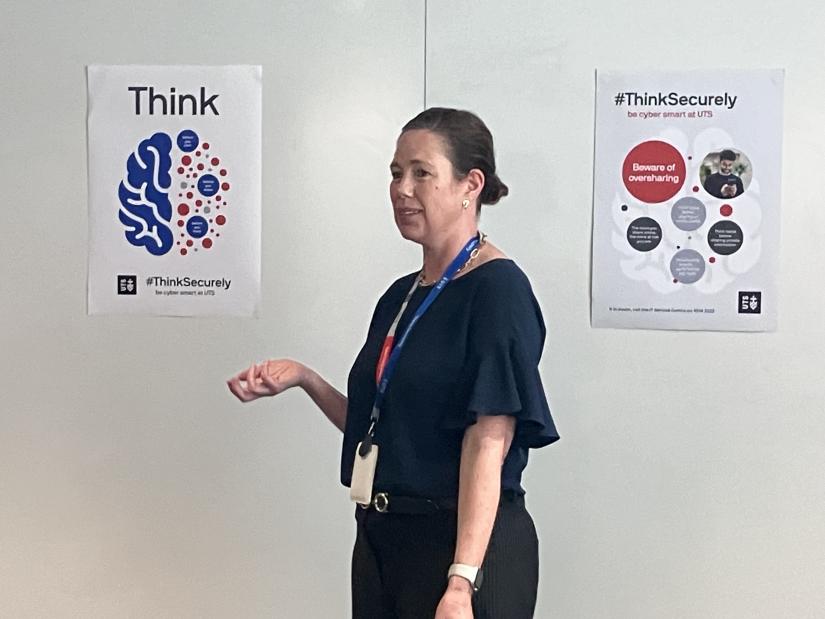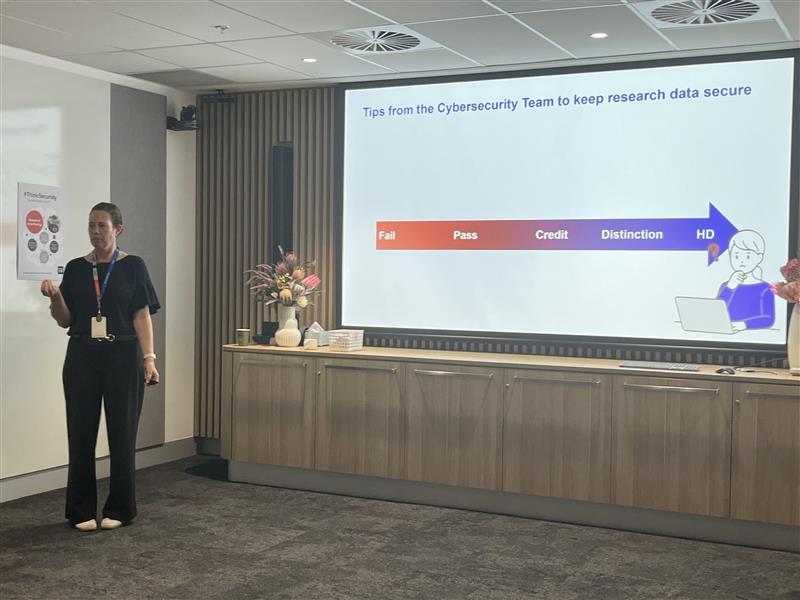Data security is increasingly important for all UTS staff and especially researchers that often handle confidential information. Thanks to Nicola O'Brien from the UTS Cybersecurity Team who shared these insights on how to protect your research data.
Keep your data safe
“Our team works tirelessly to try and protect the university from cyberthreats which come from the outside,” Nicola said. “By following these three practical tips, you can significantly enhance your data security and protect your valuable research data from cyber threats.”
Secure your data
Nicola highlighted the importance of storing research data securely. She encouraged researchers to use the Microsoft ecosystem available through their UTS accounts, such as OneDrive, to ensure data is backed up and secure.
She also warned against storing data on thumb drives or personal laptops, which can be easily lost or accessed by unauthorised individuals.
Use strong passwords and multi-factor authentication
One of the simplest yet most effective ways to protect your data is by using strong, unique passwords and enabling multi-factor authentication.
Your UTS password should be different from any other password you have.
Nicola shared a real-life example of a company that was hacked due to a weak password, resulting in significant disruptions.
"Your UTS password should be different from any other password you have,” she warned, adding that if your UTS password is the same as your banking password, your Netflix password, your Amazon account or one used for any other service, you should change it as soon as you can.
Ensure you enable software updates
Keeping your devices and software up to date is crucial for cybersecurity. Nicola pointed out that software updates often include security patches that protect against the latest threats.
Ignoring these updates can leave your devices vulnerable to attacks.


Use GenAI tools with care
With the increasing use of AI tools in research, it's essential to be cautious about the tools you use and the data you input into them.
Be mindful of the data you share when you use AI tools and be sure to follow the university's AI guidelines to ensure data security.
Nicola said that UTS monitors the various AI tools used by staff and provides guidelines on the safe use of AI.
“Be mindful of the data you share when you use AI tools and be sure to follow the university's AI guidelines to ensure data security,” she advised.
Read about using AI in research.
Be informed about cybersecurity threats
Nicola stressed the importance of staying informed about cybersecurity threats and best practices by participating in workshops and training sessions offered to UTS staff. She encouraged researchers to ask questions and seek guidance to improve their cybersecurity knowledge and practices.
What’s next?
Learn more about cybersecurity at UTS by following the ThinkSecurely Sharepoint site at thinksecurely.uts.edu.au, to receive regular updates.
Find answers to any questions about UTS policies and what obligations you have when handling data by asking the UTS Cyber / IT PolicyBot at uts.ac/CyberPolicy.